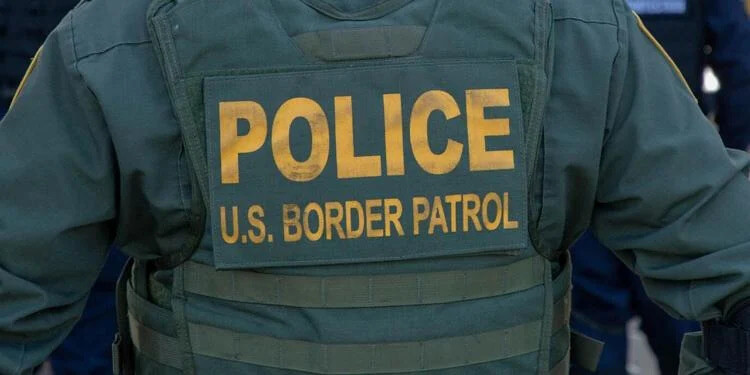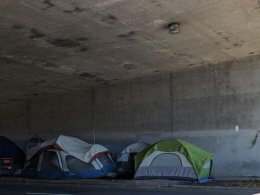By: Bethany Blankley
Chris Cabrera, vice president of the National Border Patrol Council, testified before Congress about the hardships Border Patrol agents are experiencing.
Last year was especially hard, he said, with 17 agents committing suicide.
“To put that in perspective,” he said, the New York Police Department’s roughly 35,000-man force, they lost 4 to suicide.
“We see a lot of stuff out there that the average person doesn’t see. What hits folks the hardest is what happens with the children,” he said, referring to human trafficking and unaccompanied young children being brought across.
“It’s a difficult job,” he said. “It’s increasingly getting harder by the fact that we’re not put in a position to do the job that we were trained to do. The Border Patrol is the only union in the history of unions that is actually asking for more work.”
“Let us work. Let us do our job,” he pleaded.
Cabrera testified Wednesday before the U.S. House Committee on Homeland Security at a field hearing on border security in Pharr, Texas, on behalf of 16,000 Border Patrol agents the NBPC represents.
“Morale is significantly down,” he said. “Our agents are frustrated that we’re babysitters,” he said, referring to being tasked with processing and releasing illegal foreign nationals into the U.S. instead of deporting them, securing the border and thwarting cartel activity – tasks they’re trained to perform.
“Roughly 30-40% of our agents actually get out into the field on any given day,” he said, but then they get called back to process paperwork or transport people to drop-off points. “The real bad guys, the smugglers that are harming people that are bringing jobs into this country, or trafficking humans are getting away and that affects agents in their desire to do their job,” he said.
In fiscal 2022, Border Patrol agents apprehended an unprecedented 2.2 million illegal foreign nationals, he said, roughly five times the number apprehended in the last year of the Trump Administration “and a clear sign of how the border policies of this administration are failing,” he said.
Roughly half of those arrested last year were expelled under Title 42, he said, which expires in May. The majority who weren’t expelled were released into the U.S. Agents also reported in the last two years “well over 1.2 million confirmed” gotaways, those who intentionally seek to evade capture by law enforcement.
“They got away simply because we did not have enough agents to apprehend them,” he said. “To put this in perspective, right now we are in the Rio Grande Valley with a population of 1.3 million people. We had almost the entire population of this area walk right into this country illegally because we lacked the manpower to stop them. If that is not the definition of a problem, I don’t know what is.”
To solve the “chaos on the border,” he said two solutions could be implemented immediately: ending catch and release and hiring more Border Patrol agents.
Cabrera said he’s made these suggestions before, including when he testified before the U.S. Senate Homeland Security Committee in 2015. He told senators then, he said, and again on Wednesday, “as long as we continue to release illegal immigrants into this country, they will continue to come. It is that simple.”
He also said ending the policy is law and the Biden administration is breaking it. “Ending catch and release,” he said, “is the law. Section 235(b) of the Immigration and Nationality Act requires Homeland Security to detain all migrants apprehended entering illegally.”
The law allows officials to “parole individuals on a case-by-case basis for urgent humanitarian reasons or significant public benefit,” he said, but that’s “not what the Biden Administration has been doing the past two years.”
He also said it was Congress’s responsibility to ensure Border Patrol agents can fulfill their mission to secure the border and it must prioritize retention and recruitment of agents.
“Border Patrol staffing currently hovers around 19,300 agents,” he said, pointing to Tucson Sector Chief Joe Modlin’s testimony last month before the House Oversight Committee that at least 22,000 agents are needed to deal with the current crisis.
“Increasing net manpower by 2,700 agents,” he said, “may sound simple” but it’s “going to take a tremendous effort.” Border Patrol has “a problem” because its current attrition rate is 6.9% – 72% higher than that of the Office of Field Operations – and is “expected to climb to over 9% by 2028.”
The primary reason Border Patrol can’t recruit and retain agents is because it lacks pay parity with other federal law enforcement agencies, he said. If Border Patrol “continues to hemorrhage personnel, there is no way we will secure the border,” he warned.
Related Story: Desperate CBP Offering up to $20K to Hire New Border Patrol Agents









